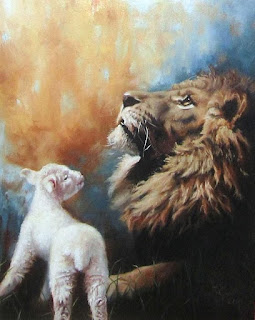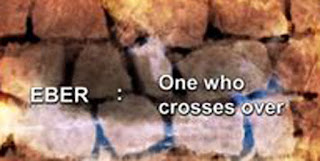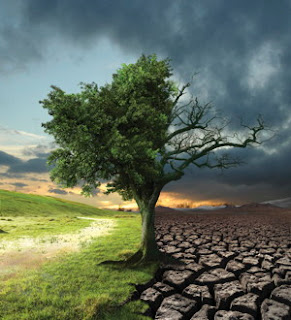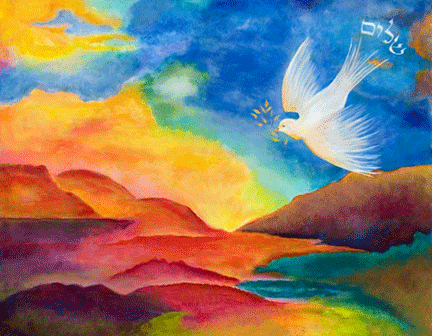The cross. What took place there is the crossroads (pun intended?) of human history.
All the scriptures point to this One Monumental Moment in time. The work of the Messiah on the cross - and His subsequent resurrection - is why the Berean Jews searched the scriptures daily to see if these things were true.
So what is the crux of the cross?
Love.
There is a lot of talk about love today. Love is love. Be kind to everyone. All kinds of love are equally valid.
It all sounds so lovely and good. And indeed, what did Yeshua say were the two greatest commandments?
So what is the crux of the cross?
Love.
There is a lot of talk about love today. Love is love. Be kind to everyone. All kinds of love are equally valid.
It all sounds so lovely and good. And indeed, what did Yeshua say were the two greatest commandments?
1. Love God. In fact, love Him with your whole heart, soul, mind, and strength. In other words, love Him with all ya got.
2. Love your neighbor as (much as you love) yourself. Scripture goes on to define your neighbor as those like you (friends, brethren) and those not like you (Samaritans, enemies).
Both of these commands sum up the essence of the entire Sinai Covenant, which points toward (and was fulfilled in) Yeshua.
When Yeshua was sacrificed, He gave us a visual picture of that love - the cross itself.
The vertical part, the trunk of the tree so to speak, is the part that points to the heavens. It points to the love of God. We love because He first loved us.
The horizontal part is the snapshot of love to the world. God Himself in human form stretched out His arms to love all of us. In the same way, it is a picture of the love we are to have for humanity.
Notice that the horizontal crossbar of the cross is firmly attached to the vertical bar. It is because of the love of God that we can love others. We love because He first loved us.
Without that vertical stake, there is nothing on which to hang/fix/attach/base that horizontal bar that represents our love for others.
We can try, for a time, to try and love others in our own power. But because of the sinful nature of people (we can all be jerks at times), eventually, without the firm foundation of God’s love, humanistic love will fall flat.
In fact, it is already happening.
I would like to ask those in favor of a godless, humanistic love for your fellow man: where exactly do you think this love comes from?
Are you being honest when you claim that we should just be kind to everyone? Are you kind to those who hold to a biblical faith? Or do you act like you are, but make fun of them being their backs?
Funny how I don’t see love for the Bible believers showing up much in your claims. In claiming that those people are intolerant fundamentalists, haven’t you just created your own version of intolerant fundamentalism?
(Side rant: when atheists use the term "freethinkers," what they really mean is people who think like they do. Wrap your head around that. All people possess free will, and are therefore free to come to their own conclusions based on the best evidence before them.)
There is nothing new under the sun.
As believers, this shouldn't really surprise us. Note the words of Yeshua in John 15:18-19...
If the world hates you, know that it has hated me before it hated you. If you were of the world, the world would love you as its own; but because you are not of the world, but I chose you out of the world, therefore the world hates you.They just don't like us/Him.
Two groups of people that I see coming up in humanistic love claims, over and over again, are the Muslims and the gays. Why these two groups, in particular?
Does your kindness to Muslims only include the moderate ones? Or are you also kind, loving, and accepting to the ones who fly planes into buildings and behead followers of Yahweh?
Does your kindness and acceptance toward gays include all of them, including NAMBLA members and pedophiles?
I’m not saying we shouldn’t love all people, including our enemies. We should. It is a clear command to us, the second most important one. Yeshua saw worth and value in every person, which is why He sacrificed Himself for every single person on the planet. He desires that NONE should perish but that ALL come to repentance and find life in Him.
Yeshua Himself made the claim, I am the Way, the Truth, and the Life. No one comes to the Father except through me.
If His claim is true, then eliminating His atoning death on the cross from the conversation is probably the most unkind, unloving thing a person can do.
However, not every person will accept His love offering that was given for them on the cross.
If His claim is true, then eliminating His atoning death on the cross from the conversation is probably the most unkind, unloving thing a person can do.
However, not every person will accept His love offering that was given for them on the cross.
They will say, "How intolerant of Him to only provide one way. How dare He?"
As if that one way - the violent and painful murder of God Himself on an execution stake - was simply not good enough.
The Creator established the rules of the world that He created, and as Creator, He was entitled to do so. In Leviticus 17:11, we are clearly told that without the shedding of blood, there is no atonement. It was His innocent blood that provided that atonement - He paid the penalty that we owe for sin - death.
The Creator established the rules of the world that He created, and as Creator, He was entitled to do so. In Leviticus 17:11, we are clearly told that without the shedding of blood, there is no atonement. It was His innocent blood that provided that atonement - He paid the penalty that we owe for sin - death.
I will end with a quote from the Master: Greater love has no one than this, that he lays down His life for his friends.
He then proved it by laying down His life; not only for His friends, but for His enemies as well, as shown in Romans 5:6-8:
For while we were still weak, at the right time Messiah died for the ungodly. For one will scarcely die for a righteous person—though perhaps for a good person one would dare even to die— but God shows his love for us in that while we were still sinners, Messiah died for us.
He then proved it by laying down His life; not only for His friends, but for His enemies as well, as shown in Romans 5:6-8:
For while we were still weak, at the right time Messiah died for the ungodly. For one will scarcely die for a righteous person—though perhaps for a good person one would dare even to die— but God shows his love for us in that while we were still sinners, Messiah died for us.
Now that is LOVE!










































